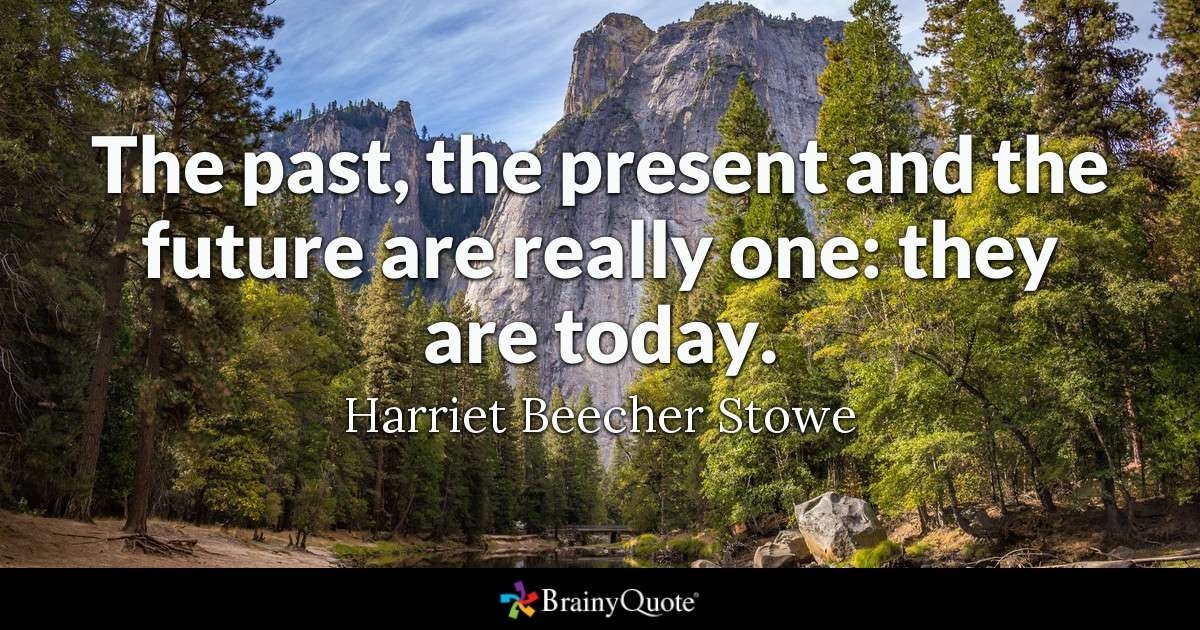
Dealing with the Past – Parshat Haazinu
Omni-temporal Man - Part 1
Finding a title for each blog has become a fun part of the challenge of writing a blog. It should catch the eye while reflecting at least a bit of what the content will be. When I decided on the topic of this blog, I started thinking of a catchy title. It must refer somehow to the past. I decided to try a paradoxical/rhetorical approach and for the first time I searched for another blog with the opposite of what I wanted to say. I admit, though, I was only a bit shocked that there was actually a blog post out there saying, "For A Better Future... Detach From The Past".1 That was not what I wanted to say. Or maybe perhaps with a question mark at the end. I settled on a 2 part title. This blog will be part of a trilogy on omni-temporal man, as Man actually lives in the past, present and future simultaneously.
Understanding our past isn’t just a mantra. It is a core value in the Torah. There are at least 6 times in the Torah we are told to remember.2 There are also 6 mitzvot called the 'constant mitzvot' because of the need to constantly be aware of them.3 So it should come as no surprise that as the Torah is coming to its completion, we are exhorted to remember our past and understand it.4 This 2-phase commandment requires us to actually study our past. The first phase is remembering - many people have that capability. The second phase, though, requires a higher level of consciousness and understanding, explains the Netziv. Fewer people are capable of actually reaching that level of understanding. Yet that is what is expected of us.
Interestingly, the three holidays of Tishrei - Rosh Hashanah, Yom Kippur and Sukkot - celebrate these three times as well. On Rosh Hashanah we focus on what we want from the coming year. Yom Kippur is the day we ask forgiveness for past transgressions. Sukkot is the holiday of happiness – enjoying the moment. Past, present and future all being confronted and experienced in a short 3-week period.5
Making sense of what has happened in our lives is not the same as simply gaining more and more insight ad infinitum. It is simply discovering the hidden meanings of what has happened. As Michelangelo famously answered as to how he was able to sculpt his magnificent David statue from a simple piece of marble: "The sculpture was already in the marble. It was my job to discover it".6
Though we live our lives in the present, we carry with us meaning and beliefs from our own personal history as well as our dreams and plans for tomorrow. The author of Uncle Tom's Cabin, Harriet Beecher Stowe, was quoted as saying: "The past, the present and the future are really one: they are today."7
We are challenged to live today.
Chag Sameach!!
Notes
- https://www.huffpost.com/entry/for-a-better-futuredetach_b_11527920. it must be noted to the writer's credit that she left open the option that some memories and beliefs are good to keep
- https://he.wikipedia.org/wiki/%D7%A9%D7%A9_%D7%96%D7%9B%D7%99%D7%A8%D7%95%D7%AA Hebrew source
- Biur Halacha - Orach Chayim 1:it is a great principle – this source has a list of the 6 constant mitzvot
- Devarim 32:7
- I thought of this as I was writing. If there is a source for this idea I would happy to hear of it.
- This quote has been attributed to Michelangelo and appears in different but similar versions. Here is one site that has some of these versions - https://www.brainyquote.com/authors/michelangelo-quotes
- This quote has been attributed to Harriet Beecher Stowe. Harriet Beecher Stowe Quotes. (n.d.). BrainyQuote.com. Retrieved October 11, 2019, from BrainyQuote.com Web site: https://www.brainyquote.com/quotes/harriet_beecher_stowe_117728 The picture accompanying the blog is from the same web page.
Have A Great Shabbat!![]()
For More Information On Logotherapy And How You Can Create A Fuller, More Meaningful Life, Or To Book An Online Session,
- Call Me At +972-54-589-3399, or in Israel 054-5893399
- Contact Me Thru my email at [email protected]

 Previous
Previous

